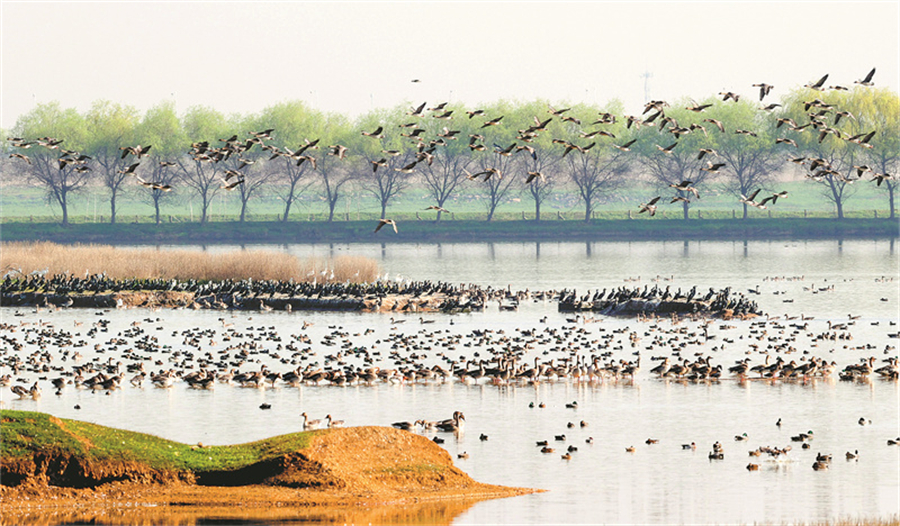Scaling up practical wetlands protection

Migratory birds from Northeast China and Siberia gather at the Fuhe Wetland Park in Wuhan last winter. [Photo/China News Service]
The world's wetlands have declined by 35 percent since the 1970s. And the quality of the remaining wetlands is also declining due to the effects of drainage, pollution, invasive species and climate change.
At the 14th Meeting of the Conference of the Contracting Parties to the Ramsar Convention on Wetlands (COP 14) held in Wuhan, Hubei province, on Saturday, China announced the practical measures it will take to protect wetlands.
Implementing the proposals and measures put forward is of crucial importance in the country's efforts to respond to climate change and protect biodiversity, and should be regarded as a part of the country's efforts to build a community with a shared future for mankind.
China now has 13 of the 43 Ramsar Wetland Cities, a title the COP has granted to model cities in wetlands protection. This is the most of any country in the world. It is a full recognition of China's continuous investment in environmental protection and continuous improvement of its wetland ecology over the years.
According to statistics, China has added or restored more than 800,000 hectares of wetlands since 2012, and now has 64 wetlands of international importance. China has also established a protection system and promulgated the Wetlands Protection Law. It is fair to say that China has played an important role in promoting global ecological progress over the past decade.
The harmonious coexistence between mankind and nature is one of the defining features of China's development path as well as an essential requirement for the county's modernization.
COP 14 showed that China will continue to double down on its efforts to conserve its wetlands. For instance, the country will gradually set up a number of national parks, bring about 11 million hectares of wetlands into the national park system, and implement the national wetland protection plan and major wetland protection projects.
At the same time, China will set up an international mangrove center in Shenzhen, Guangdong province, and support the holding of various forums and conferences to promote international exchanges and cooperation in this regard, and particularly to protect the four routes for migratory birds passing through China.
In terms of ecological preservation and green development, China has always been a country of deeds.
The views don't necessarily reflect those of Qiushi Journal.
























